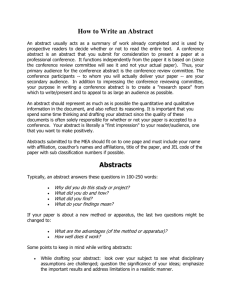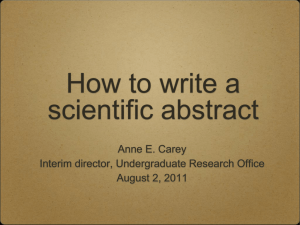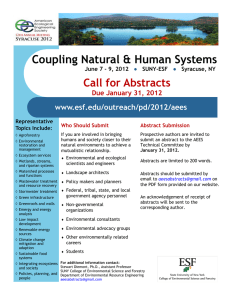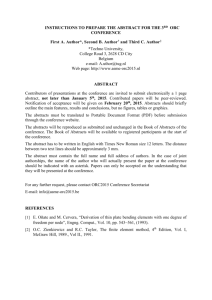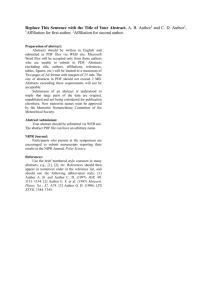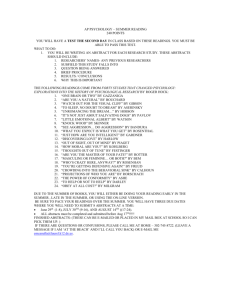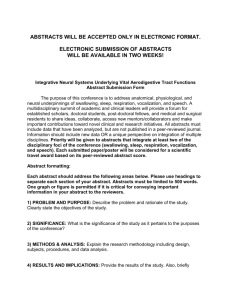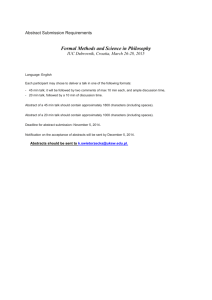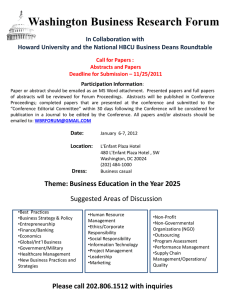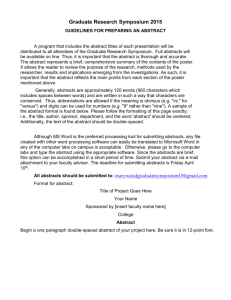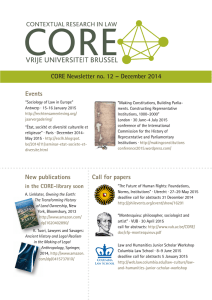Writing An Effective Abstract
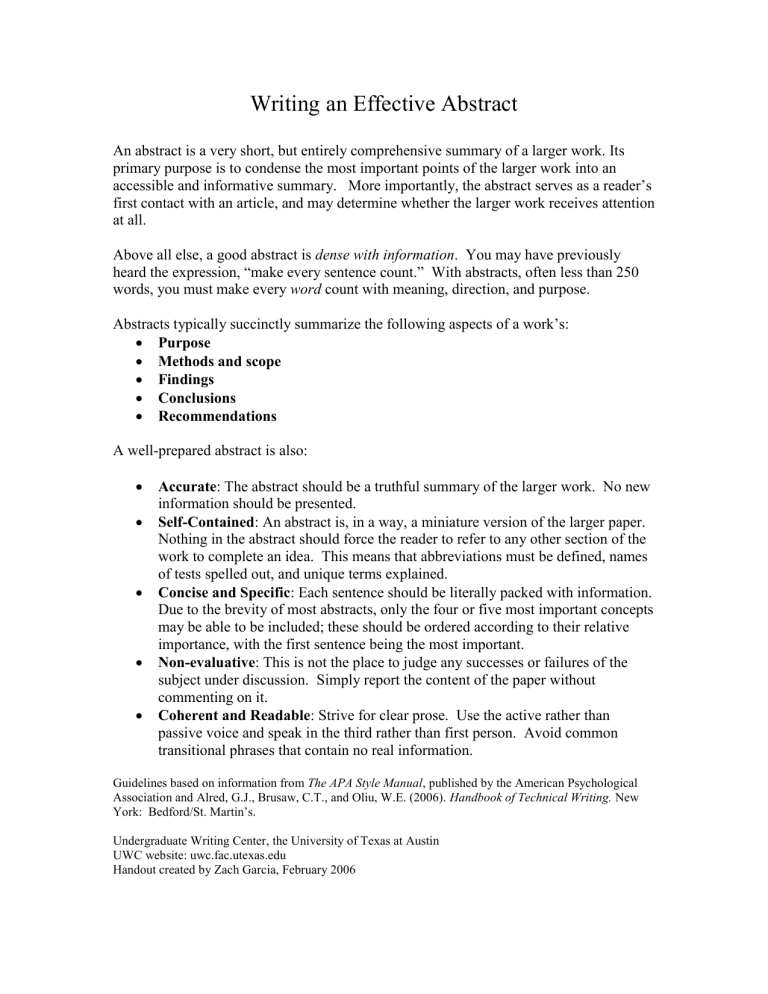
Writing an Effective Abstract
An abstract is a very short, but entirely comprehensive summary of a larger work. Its primary purpose is to condense the most important points of the larger work into an accessible and informative summary. More importantly, the abstract serves as a reader’s first contact with an article, and may determine whether the larger work receives attention at all.
Above all else, a good abstract is dense with information . You may have previously heard the expression, “make every sentence count.” With abstracts, often less than 250 words, you must make every word count with meaning, direction, and purpose.
Abstracts typically succinctly summarize the following aspects of a work’s:
Purpose
Methods and scope
Findings
Conclusions
Recommendations
A well-prepared abstract is also:
Accurate : The abstract should be a truthful summary of the larger work. No new information should be presented.
Self-Contained : An abstract is, in a way, a miniature version of the larger paper.
Nothing in the abstract should force the reader to refer to any other section of the work to complete an idea. This means that abbreviations must be defined, names of tests spelled out, and unique terms explained.
Concise and Specific : Each sentence should be literally packed with information.
Due to the brevity of most abstracts, only the four or five most important concepts may be able to be included; these should be ordered according to their relative importance, with the first sentence being the most important.
Non-evaluative : This is not the place to judge any successes or failures of the subject under discussion. Simply report the content of the paper without commenting on it.
Coherent and Readable : Strive for clear prose. Use the active rather than passive voice and speak in the third rather than first person. Avoid common transitional phrases that contain no real information.
Guidelines based on information from The APA Style Manual , published by the American Psychological
Association and Alred, G.J., Brusaw, C.T., and Oliu, W.E. (2006). Handbook of Technical Writing. New
York: Bedford/St. Martin’s.
Undergraduate Writing Center, the University of Texas at Austin
UWC website: uwc.fac.utexas.edu
Handout created by Zach Garcia, February 2006

